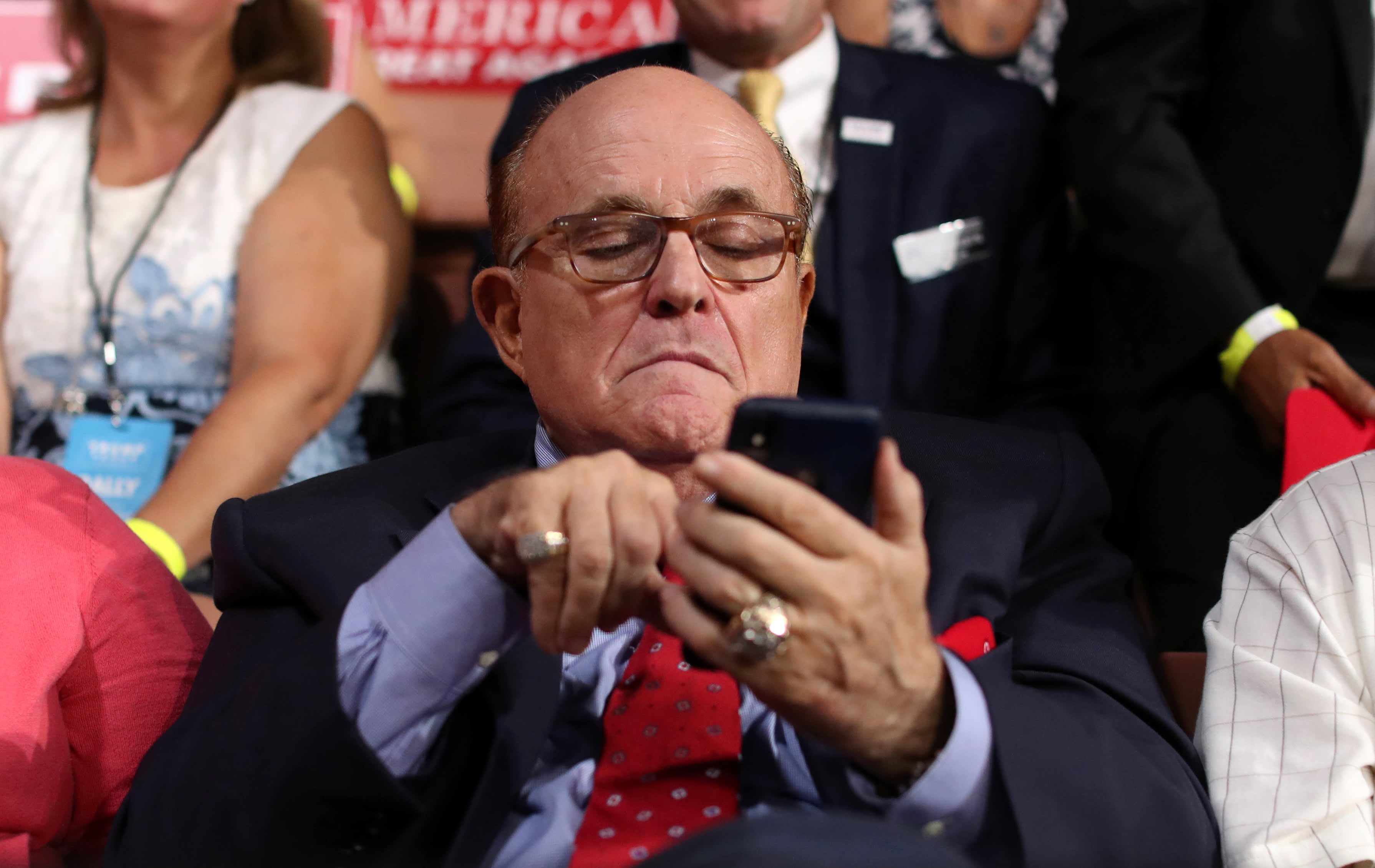Rudy Giuliani investigation: Judge approves special review of material seized from Trump-allied lawyers

A federal judge agreed Friday to appoint a special master to recommend what evidence prosecutors should be able to see from material recently seized via search warrants from Rudy Giuliani, who is under criminal investigation, and another lawyer allied with former President Donald Trump.
In the same ruling, Manhattan federal court Judge J. Paul Oetken denied a series of requests related to those warrants by Giuliani, who turned 77 on Friday, and by the other lawyer, Victoria Toensing.
Oetken slapped aside arguments by Giuliani and Toensing, who he said were arguing in effect that prosecutors should conduct their investigation with subpoenas for information "rather than by search warrant."
"Guiliani's and Toensing's position lacks legal support," Oetken wrote in an order.
"The search warrants at issue here were based on judicial findings of probable cause — supported by detailed affidavits — to believe that evidence of violations of specified federal offenses would be found at the locations to be searched. There is no legal requirement for the Government to proceed by subpoena, nor is there any basis for the subject of an investigation to require it to do so."
Giuliani is being investigated by the U.S. Attorney for the Southern District of New York, a position he once held, for his activities in Ukraine.
Prosecutors are eyeing whether he violated federal lobbying law by not registering as a lobbyist for entities who were seeking various actions related to Ukraine, including the removal of the American ambassador under Trump.
Giuliani, a former New York City mayor who has served as a personal lawyer for Trump, denies any wrongdoing.
The special master will review files on electronic devices seized in April from Giuliani and Toensing, a Maryland resident, for material that is potentially privileged and exempt from being viewed by prosecutors and investigators.
Such material might include documents exchanged between Giuliani and clients, such as Trump, that could be exempt from disclosure to prosecutors because of the attorney-client privilege.
The same special master process was used to review materials seized from Trump's former personal lawyer Michael Cohen in 2018 as part of a federal criminal probe that ended with Cohen's conviction.
Oetken noted that prosecutors suggested the electronic devices seized from Giuliani and Toensing should be handled the same way as Cohen's "in light of the parallels to this matter."
"The Court agrees that the appointment of a special master is warranted here to ensure the perception of fairness," Oetken wrote in his order.
Both lawyers had asked Oetken for the return of seized materials to them for their own review, the return of the results of 2019 searches of their iCloud and email accounts, and the unsealing of affidavits submitted to justify the search warrants for Giuliani in 2019 and 2021.
"Giuliani and Toensing contend that their status as lawyers, including Giuliani's status as a lawyer to the former President, makes these searches problematic," Oetken wrote in the order as he rejected those requests.
"But lawyers are not immune from searches in criminal investigations," the judge wrote.
"Rather, a law office search 'is nevertheless proper if there is reasonable cause to believe that the specific items sought are located on the property to be searched,'" the judge wrote, citing a prior court ruling.
Oetken also denied Toensing's request to have the government return her iPhone and her Google and iCloud data.
"The Government has already returned Toensing's cellphone, and she apparently has access to her iCloud and email accounts. She appears to be objecting, therefore, to the Government's retaining a copy of this information," Oetken said.
The judge noted "there is nothing improper or unlawful about the Government's retention of them" and said Toensing will have a chance to challenge issues of privilege.
Giuliani's lawyer Arthur Aidala, in a text message to CNBC, said, "We knew that a Special Master was inevitable, which is why we did not oppose it, so this ruling comes as no surprise to us."
Michael Bowe, a lawyer for Toensing, told CNBC, "We have no comment at this time."
Giuliani's lawyers argue that the search of his iCloud — which was not known to Giuliani for about 18 months — may have violated his attorney-client privilege and the right of Trump as president to have his communications with his lawyer protected.
They say that the recent search warrants might be tainted by their reliance on information obtained from the iCloud search.
Aidala last week disputed a claim by prosecutors that Giuliani was somehow arguing he was above the law in his challenging of the search warrants.
"No one is saying Mayor Giuliani is above the law," Aidala told CNBC at the time.
"However, the government is obligated to follow the specific procedures that must be adhered to when reviewing material obtained from a lawyer by means of a search warrant as opposed to issuing a subpoena."
"Any lawyer has an attorney-client privilege that he must protect on behalf of his clients," he said. "That privilege is doubly enhanced when the lawyer's client is the President of the United States who also enjoys Executive privilege."
Source
Check Our More
No comments